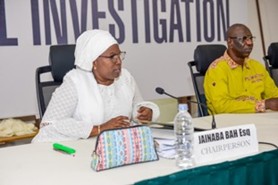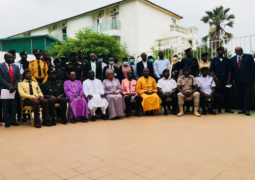
The first case concerned the selection of a consultant to prepare architectural drawings for community transfer stations with recycling facilities, at a cost of D90,000. Nyang confirmed that the consultant was not selected through a Request for Proposals (RFP) but was instead single-sourced.
He explained that the project was initially conducted in-house, but gaps in the Bill of Quantities (BOQs) led to the engagement of an external consultant. “That is why it was single-sourced,” he told the commission.
The commission noted that by the time the ratification process was underway, the contract had already been tendered. Asked why payment was approved despite knowing that single-sourcing violated procurement regulations, Nyang responded:
“I do know it has to be subjected to procurement regulations, but in this process you are advised accordingly. When you are advised, and with timelines, you approve it. I must have received advice from the procurement unit.”
He admitted having only a limited knowledge of procurement law, stressing that the decision was based on urgency and the need for an expert. He also clarified that the first in-house work was unpaid, making this the first instance where project funds were used for consultancy.
The second case involved an international consultancy contract worth D360,000 to develop training modules for the “Teach the Teacher” programme on environmental sustainability. According to the commission’s findings, an advance payment of D180,000 (50 percent of the contract sum) was made, contrary to Section 145(2) of the Procurement Act, which stipulates that advance payments above 20 percent require GPPA approval. No such approval was obtained.
Furthermore, Section 145(3) requires that advance payments must be backed by a bank guarantee, which was also not provided.
Nyang explained that the steering committee had initially recommended hiring an international consultant, but funding limitations forced them to source locally instead. He conceded that at least three local experts should have been considered before awarding the contract.
When pressed on the unlawful advance payment, Nyang said:
“Maybe we don’t know of it, but sometimes what happens in these instances is that all these contracts are negotiated. After that, we usually send them to GPPA, and they advise on compliance.”
Asked if he knew this was a breach beforehand, his reply was:
“No.”
The testimony has raised questions about procurement oversight and compliance in the KEPT project.





